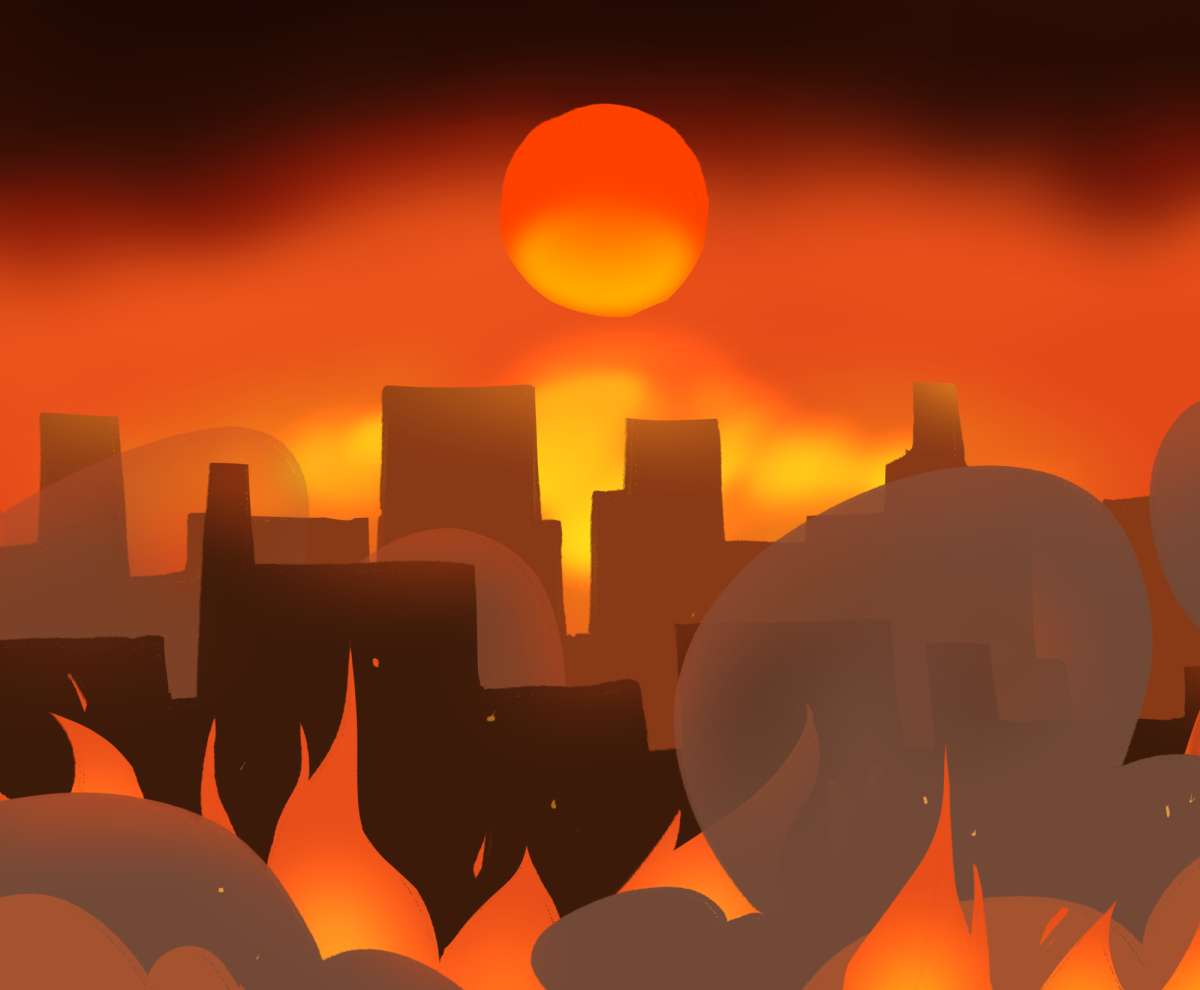Earlier this month, a series of destructive fires broke out in and around Los Angeles. The largest of these fires is the Palisades fire, along the Pacific Coast to the West of downtown LA. This fire has burned over 23,400 acres, destroyed over 6,000 structures, and is currently 65% contained. The Eaton fire is currently the second largest, burning in the San Gabriel mountains. It has burned more than 14,000 acres, including the destruction of thousands of homes, displacing tens of thousands of people, and forcing many to evacuate. The Eaton fire is currently 91% contained. The fires are some of the deadliest in California history, having killed at least two dozen people.
For Seattle University students from LA, these fires aren’t just something they see on the news; they’re personal.
Ary Matsumoto, a second-year philosophy and political science double major, is from Marina Del Rey, near LAX. Although the fires haven’t reached her area, many of her friends have been directly affected.
“Watching all of their homes get uprooted and all the places that we would go and visit together was absolutely terrible,” Matsumoto said.
She shared a story of a friend whose home in the Palisades had burned down.
“She found out that her home had burned down but she wanted to drive back to that area to see if she could retrieve any of her things, and the firefighters in that area were like ‘okay you have three minutes,’” Matsumoto said.
Matsumoto spoke to the sense of normalcy that has been stripped away from California residents amid the fires.
“That must have been absolutely terrifying because there were still flames going up around them. So just hearing her point of view, she got to drive through the streets where everything was going up in flames and she could just pick up anything that she could find. That’s just absolutely scary.”
Matsumoto shared how difficult it has been to watch the fires cause such destruction in the place she grew up.
“I lived there my entire life and even though my family wasn’t personally affected by the fires, seeing all of my friends who I went to school with for several years, them being uprooted, their homes being completely burnt down, it’s just like memories basically being lost or forgotten,” she said.
Cooper Diaz, a second-year economics major, is from the San Fernando Valley, about an hour north of downtown LA, an area that hasn’t been affected by the fires.
“It was kinda weird because I had just left the week before and it was just absolutely beautiful,” Diaz said. “Just to go on Instagram or online and see photos of the smoke on the skyline, and the skyline completely black and orange, it was depressing to see, because that’s my home, and seeing it in that state was just sad.”
Matsumoto expressed frustration with certain elements of discourse around the fires, explaining that discussing the fires as an isolated incident ignores the impacts of climate change on increasing the likelihood of these types of natural disasters.
Patrick Schoettmer, an associate teaching professor in the department of political science at Seattle U, also spoke to climate change as a contributing factor. Schoettmer’s daughter lives near the fires, able to see the Palisades fire from her house.
“I think the likelihood of these events is more tied to our sluggish response to climate change more than it is any particular set of policies,” Schoettmer said.
Schoettmer believes that the Trump administration will only make this problem worse.
“With the arrival of the Trump administration you’re going to have a second set of issues where a lot of their policies will be antagonistic towards the green policies that California has adopted and that the Biden administration had previously adopted, which could hamper America’s ability to respond to rising carbon levels and climatic damage, which could exacerbate these in the future,” Schoettmer said.
Another immediate political issue Schoettmer explained is the potential of disaster relief efforts from the federal government, and whether or not the Trump administration might place conditions on the deliverance of such aid. Schoettmer explained that Republicans may condition aid based on environmental policy or forest management, or on state cooperation with efforts to target immigrants.
Diaz and Matsumoto are both uncertain about the city’s future and what it will be like the next time they return home.
“I know there’s whole stretches of the town completely burnt down to rubble,” Diaz said. “It’s going to be weird to see, people might buy it out, or auctions for property, just tons of new development. It’s gonna be an interesting time to see LA maybe even change into a completely different thing now. Who knows what it could be? It’s just more like the uncertainty of it for me.”
Diaz expressed fears about increased corporatization, with many family-owned businesses being unable to reopen and lots of land up for sale. Matsumoto thinks the fires will significantly change the cultural status of the city.
“It’s not going to be a tourist attraction for a really long time,” she said. “It’s gonna be so weird watching Los Angeles rebuild itself because ever since I’ve been there I’ve grown to know it as this huge metropolis of like the central of LA culture, and now it’s just kind of all gone, so it’s going to be a new experience for sure.”
As efforts continue to fully contain the fires, students from LA have watched their hometown burn, and the future of the city remains uncertain.





